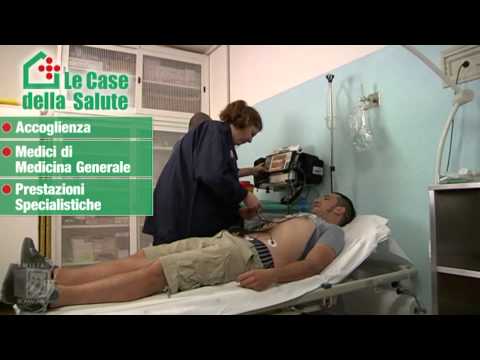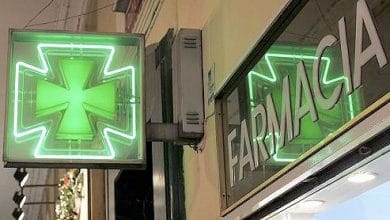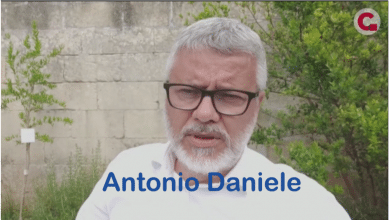
The Health Homes cannot become an alternative to the hospital-territorial network nor can they act as substitutes for primary care. This is the consideration which gave rise to the rejection imparted by the Order of Doctors to the resolution of the Emilia-Romagna Region which, in early December, had given the green light to the reorganization of the "Houses". In summary, the provision aims to reclassify the 84 structures already in operation (plus the 38 that will be added) no longer by the type of services provided but by "integrated areas" of intervention, multidisciplinary - that is, managed by teams involving different figures professional (family doctor, specialist, nurse, social and health worker) - and based on the model of initiative medicine, i.e. on the proactive planning of interventions.
 The center of gravity of the new organization, at least in the regional resolution, will be "the nursing clinic", i.e. "the place and the operating method in which the chronicity is taken care of". Managed by nursing staff, with whom the other NHS professionals (starting from the GPs) will have to relate, this clinic "should be implemented and developed in all Health Homes, medium/high complexity and low complexity, in the logic of the network integrated care". The reorganisation, consequently, also sees local pharmacies among the interested spectators, because among the functions attributed by the Region to the "Houses" of medium/high complexity there are "the distribution of medicines", the Cup, the "withdrawal point" and the «distribution of prosthetic aids».
The center of gravity of the new organization, at least in the regional resolution, will be "the nursing clinic", i.e. "the place and the operating method in which the chronicity is taken care of". Managed by nursing staff, with whom the other NHS professionals (starting from the GPs) will have to relate, this clinic "should be implemented and developed in all Health Homes, medium/high complexity and low complexity, in the logic of the network integrated care". The reorganisation, consequently, also sees local pharmacies among the interested spectators, because among the functions attributed by the Region to the "Houses" of medium/high complexity there are "the distribution of medicines", the Cup, the "withdrawal point" and the «distribution of prosthetic aids».
The "no" voted last week by the Bologna Medical Association therefore also deserves the attention of the owners. Because in the crosshairs there are those passages of the regional resolution that configure the Health Homes as structures capable of aggregating to the point of constituting "an organizational and structural alternative to the world of general medicine and hospitals". In addition, the regional choice to entrust the coordination of the "Homes" to nursing staff (without the presence of a medical director), deprives the family doctor of "the filter and orientation function" towards the patient. "Nurses" recalls the Order "have the tools to understand the seriousness of a patient's clinical condition in its entirety, but a medical evaluation is necessary for the specificity of the health need".
 Then there are the doubts about the "technical" contents of the regional resolution (already harshly criticized by Fimmg): to begin with, "the tasks of the individual components (operating in the Health Homes, ed.) are not identified, but the synthesis of the various activities that are carried out is entrusted to a non-medical manager"; then «it does not clearly emerge from the text how to protect the territory-hospital relationship with respect to the need for hospitalization in the times necessary for the pathology to be treated»; finally, the provision outlines a new structure of the health system in which the doctor is relegated to a "secondary role" and "institutionally subordinated to the nursing coordinator". The final request of the Bolognese Order, therefore, is that the Region rewrites the resolution «with a collaborative, constructive and “constituent” spirit». That is, also listening to the voice of the doctors. And perhaps of the pharmacies of the area, which had already spoken out against the Case della Salute in the conference on direct distribution organized by the regional Federfarma in Bologna in early November.
Then there are the doubts about the "technical" contents of the regional resolution (already harshly criticized by Fimmg): to begin with, "the tasks of the individual components (operating in the Health Homes, ed.) are not identified, but the synthesis of the various activities that are carried out is entrusted to a non-medical manager"; then «it does not clearly emerge from the text how to protect the territory-hospital relationship with respect to the need for hospitalization in the times necessary for the pathology to be treated»; finally, the provision outlines a new structure of the health system in which the doctor is relegated to a "secondary role" and "institutionally subordinated to the nursing coordinator". The final request of the Bolognese Order, therefore, is that the Region rewrites the resolution «with a collaborative, constructive and “constituent” spirit». That is, also listening to the voice of the doctors. And perhaps of the pharmacies of the area, which had already spoken out against the Case della Salute in the conference on direct distribution organized by the regional Federfarma in Bologna in early November.





